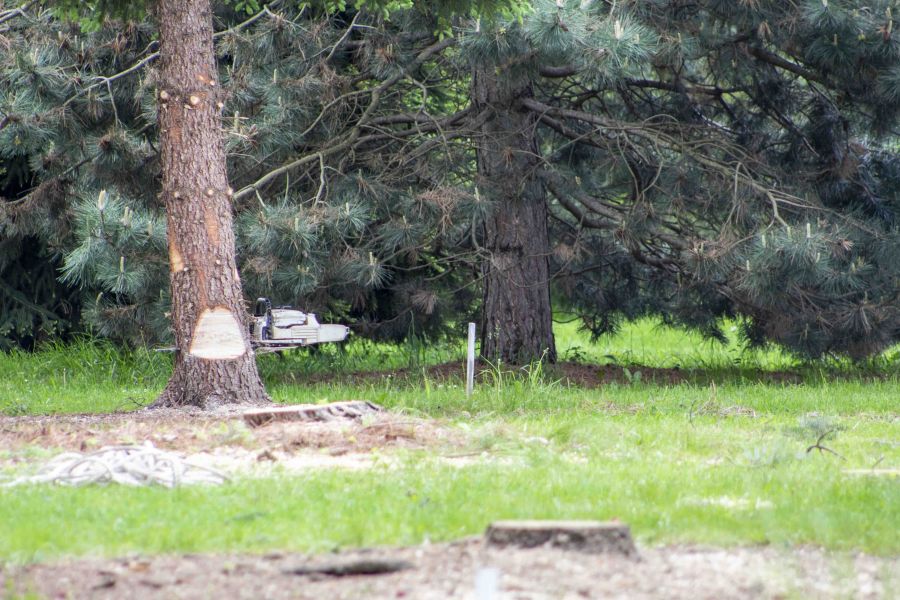David Israelson
Special to The Lake Report
Did Ontario Premier Doug Ford think that because we’re in a pandemic, nobody would notice how he keeps trying to undermine environmental protection and conservation in this province?
Because if he did, he’s wrong.
In fact, they may even notice it more because we’re in the middle of the COVID-19 mess — a whirlwind that he’s trying to address with decidedly mixed results.
Ford’s virus-fighting policies are uneven and inconsistent, but at least he’s trying. His anti-environment program is clear though, and it’s bad — he’s working to make Ontario uglier.
He may even be trying to kill Ontario’s Greenbelt.
Ford’s latest transgression against Ontario’s slice of planet Earth is an item his Progressive Conservative government slipped into the provincial budget, Bill 229, tabled on Nov. 5. Schedule 6 in this bill would disembowel Ontario’s 36 conservation authorities, which are supposed to protect the province’s watersheds.
Isn’t a budget bill supposed to be about the budget? Fair enough, while we’re in an unprecedented health crisis, governments need to be creative and nimble, and some additional measures may be necessary to address the economic hardship caused by COVID.
But it’s pretty difficult to make a case that sticking a shiv in conservation authorities will help us manage the virus.
Schedule 6 would be a sharp stab against nature. Ontario set up conservation authorities in 1946 to help correct the mistakes made by generations of poor planning that led to droughts, deforestation, erosion and floods.
The province’s conservation system was enhanced after Hurricane Hazel struck in 1954, killing 81 people and destroying houses that were on flood plains. The changes after the hurricane put authorities in charge of flood forecasting and ensuring that development near waterways is safe.
One would think that as climate change becomes more apparent each year, the government would not try to mess with flood prevention and control. One would also think that as urban dwellers in southern Ontario hanker for green space during COVID, protecting natural areas would be a priority.
Ford’s proposed Schedule 6 does the opposite. It seeks to weaken or eliminate the ability of authorities to control development and protect greenspace.
The bill would let provincial ministers step in, allow them to issue permits to developers on environmentally sensitive lands, with little or no resistance from anyone. Ministers could also override decisions that conservation authorities make to restrict development.
Actually, Ontario’s cabinet has already been stabbing away against conservation through its use of minister’s zoning orders, or MZOs. These MZOs allow Steve Clark, the minister of municipal affairs and housing, to put ice on local planning rules and let developers have their way, cut down trees and pave environmentally sensitive lands.
Ford’s government has already issued more than 30 MZOs this year. That’s about 29 more than the typical yearly rate, and research shows that in the three decades between 1969 and 2000, MZOs were used only 49 times. These orders are not a new thing, but there’s an argument to be made that they’re now being abused by Ford’s folks.
It’s true that some of the push to develop is driven by COVID-related imperatives: about a dozen of Clark’s recent orders are to speed up the building of long-term care facilities and the province is anxious to add density to areas that are close to public transit, so more people might drive less.
But it’s hard to make a case that all of this ministerial meddling is justifiable. It’s also hard to make a case that everything the Ford government is up to on conservation has to do with combating COVID-19.
It looks like a sneaky-yet-clumsy attempt to tie to anti-environmental measures to the pandemic.
“It will force us to take a step back when we’ve already made incredible progress,” said Brenda Johnson, chair of the Niagara Peninsula Conservation Authority. Her organization has added its voice to the chorus of authorities that oppose Ford’s heavy-handed attack on the environment.
David Crombie, Toronto’s former mayor, a former federal Tory cabinet minister and until recently chair of Ontario’s Greenbelt Council, noticed. He resigned as Greenbelt Council chair at the beginning of December, calling Ford’s enviro-busting moves “high-level bombing (that) needs to be resisted.”
Six other members of the council quit along with Crombie.
Earlier, in an interview with the Toronto Star, Crombie hinted the Ford government may be up to something darker.
“The way they (Ford and his ministers) are moving on MZOs and the changes to the conservation authorities … hobbling, undermining them and diminishing the ability of them to do their work will have an impact on the future of the Greenbelt,” Crombie said.
Niagara Falls MPP Wayne Gates says the impact Ford and friends seek is simple and alarming: “They want to tear up 80 years of environmental protection and help their developer friends pave over the Greenbelt.”
Ford was already caught on video, filmed before he became premier, saying he wanted to open a “big chunk” of protected farmland and wetlands — the kinds of areas that come under the Greenbelt’s shield. He said it was because he heard from “some of the biggest developers in the country.”
He later recanted — sort of — saying that he listens to what “the people” tell him and they said they don’t want to harm Ontario’s Greenbelt.
Which people?
That’s the problem, isn’t it? Listening to whoever talked to you last is what seems to be steering Ontario’s COVID-fighting policies these days; it’s not a good way to decide whether we pave and eliminate forests, wetlands and scenic watersheds.
It’s important to shed light on this dark corner of the Ford government’s legislative effort to roll back environmental protection. If Ford prizes talking to people as much as he says, he should talk more to all those people who want to save the Greenbelt.
David Israelson is a non-practising lawyer, author, journalist and communications consultant who lives in Niagara-on-the-Lake. You can follow him on Twitter @davidisraelson or on Linkedin. An earlier version of this article appeared in the Lawyer’s Daily on Nov. 26.







